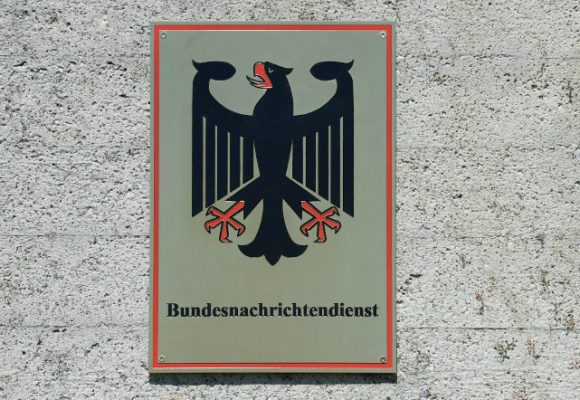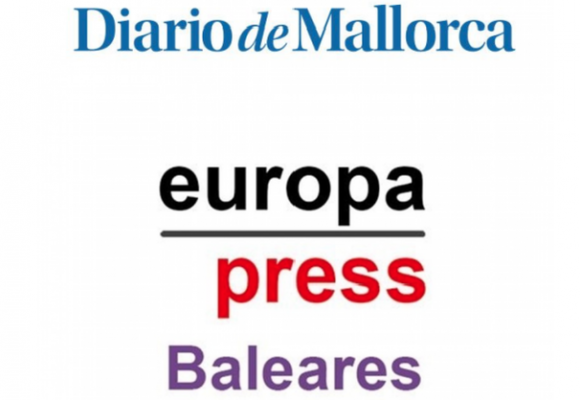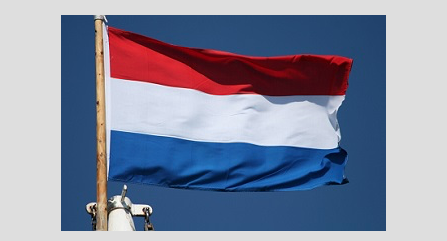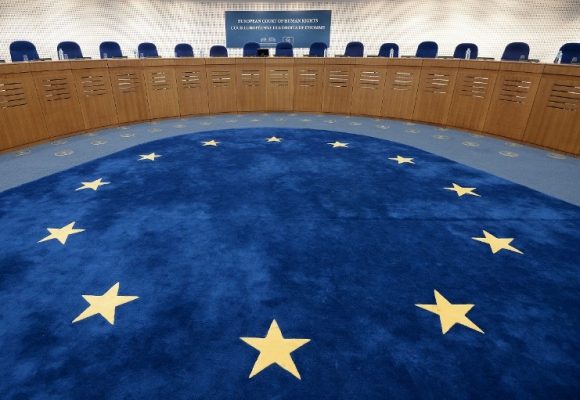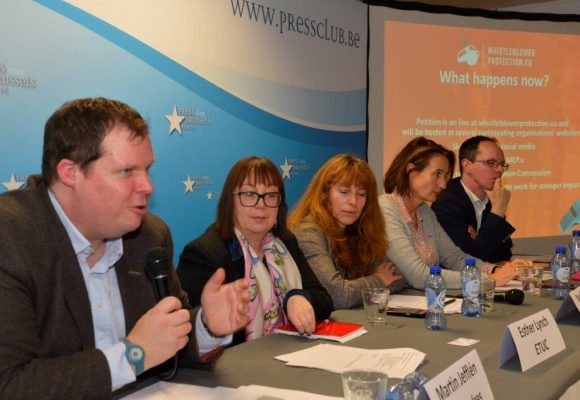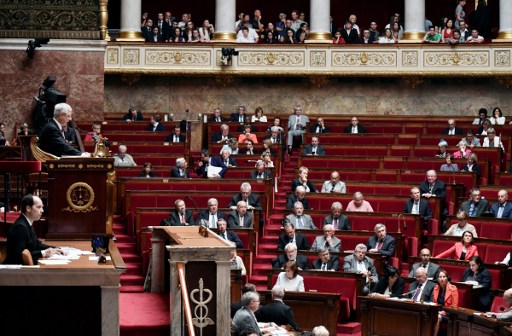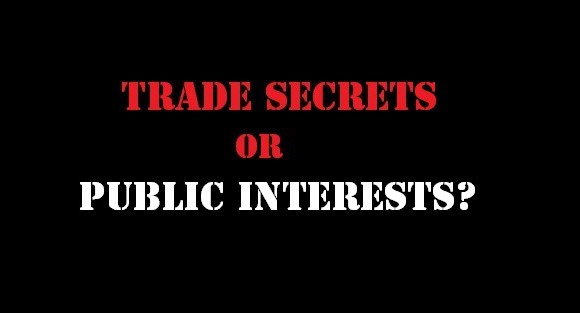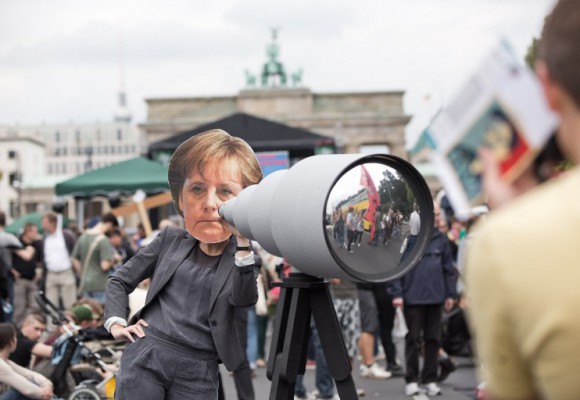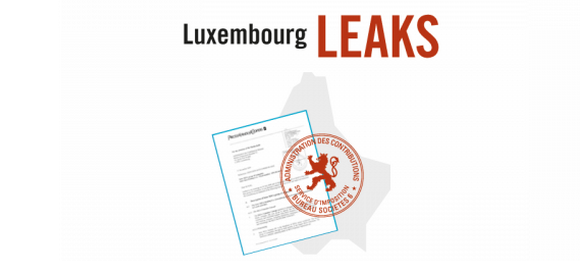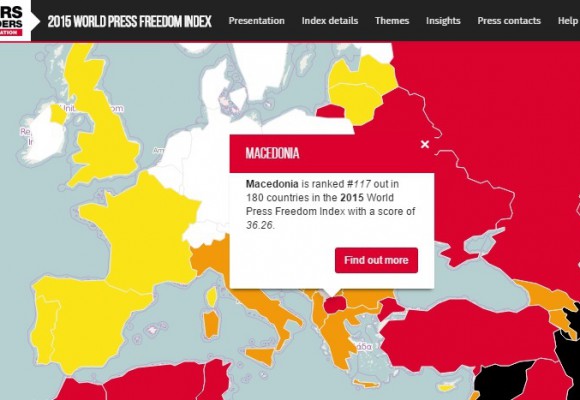#protection of sources
Victory for press freedom in Germany: Global mass surveillance ruled unconstitutional
Today, the German Federal Constitutional Court has declared the monitoring of worldwide Internet traffic by the Federal Intelligence Service (BND) to be unconstitutional. The ruling says that the BND is bound by the fundamental rights of the Basic Law when conducting telecommunications surveillance of foreigners in other countries, and it violates the fundamental right to privacy of telecommunications (Art. 10(1) of the Basic Law, Grundgesetz – GG) and the freedom of the press (Art. 5). Back in 2016 the Bundestag passed a law that allowed the Federal Intelligence Service to spy on foreign journalists. As this destroys the trust between journalists…
Spain: Police seized journalists’ documentation and devices in relation to corruption case
Spanish police officers raided the headquarters of Spanish news agency Europa Press and newspaper Diario de Mallorca, on 11 December, to confiscate documents and personal devices of several journalists. The International and European Federations of Journalists (IFJ and EFJ) joined their Spanish affiliates, FeSP, FAPE and CCOO, in condemning the police operation, which is a serious violation of the right of journalists to protect their sources. This right is a fundamental pillar of press freedom and is protected by the 20th article of the Spanish Constitution. Its violation is an attack on the free exercise of journalism. According to Europa…
Netherlands: New ‘Source Protection Act’ finally enters into force
On 1st October, the Source Protection Act in Criminal Cases has finally become effective in the Netherlands. The law provides strengthened protection for the confidentiality of journalists’ sources, which have been recognised in several cases as an essential part of freedom of expression by the European Court of Human Rights. The European Federation of Journalists (EFJ) joined its Dutch affiliate the NVJ in welcoming the law, defined by NVJ General Secretary Thomas Bruning as “necessary to the correct functioning of journalism”. With the Source Protection Act, there will always be a preliminary consideration by a judge before the police can have access to the sources data…
Investigative reporter Pavla Holcova’s phone seized after eight-hour interrogation related to Jan Kuciak’s murder
Investigative journalist Pavla Holcova, former colleague of Jan Kuciak and founder of the Czech Center for Investigative Reporting, was interrogated by the Slovak National Crime Agency during eight hours on Tuesday 15 May, after which her phone was seized. Ms Holcova had been working with Jan Kuciak on behalf of the Organized Crime and Corruption Reporting Project (OCCRP) when he was murdered and had therefore previously helped police telling what she knew. She first believed this new summons was another meeting to help investigating the murder of Jan Kuciak. But the interrogation lasted over eight hours and was not about Kuciak’s killing. In…
Protection of sources: Norwegian journalist won in Strasbourg
Ordering a journalist to give evidence on a source is not justified, even though the source himself has come forward to the police. That’s the main outcome of a decision of the European Court of Human Rights, today, regarding the case launched in 2012 by Norwegian journalist Cecilie Langum Becker, who was ordered to give evidence on her contacts with her source for an article about the Norwegian Oil Company, and fears that it might collapse. The European Court recalled that a journalist’s protection could not automatically be removed because of a source’s conduct. Bearing in mind its previous judgments emphasising the chilling…
Whistleblowers need EU protection: sign the petition #whistleEU
On 17 October, a platform initiated by Eurocadres (Council of European Professional and Managerial Staff) calling for an EU-wide whistleblower protection was launched by the first 48 signatories of a joint statement, including the European Federation of Journalists (EFJ). The EFJ is encouraging individuals and organisations to sign the petition. At a press conference at the Brussels Press Club , representatives of Eurocadres, the European Trade Union Confederation (ETUC), the European Federation of Public Service Unions (EPSU), Transparency International and the EFJ all emphasised the importance of joining forces on this crucial issue. Following the debate before summer of the trade secrets…
France: parliament voted to restrict journalists’ protection of sources
The European Federation of Journalists (EFJ) joined its French affiliates, the Syndicat national des journalistes (SNJ) and the Syndicat national des journalistes-CGT (SNJ-CGT), to denounce the last-minute amendment voted on Monday 18 July by the National Assembly, to restrict journalists’ protection of sources, only a few days following the Nice attack. Submitted a few hours before the new reading of the proposal to strengthen the freedom, independence and pluralism of the media, the amendment foresees to restrict the protection of journalists’ sources when they violate the “secret of national defence” and “the fundamental interests of the Nation.” This extension is considered “indispensable” because of…
UK High Court rules against data retention rules
The UK’s High Court has ruled that parts of the controversial surveillance law, the Data Retention and Investigatory Powers Act (DRIPA), violated article 7 and 8 of the European Convention on Human Rights and the personal data protection laws. The EFJ affiliate in the UK, the National Union of Journalists (NUJ), has long been campaigning against DRIPA to ensure that the right of journalists to protect their confidential sources is protected. On Friday 17 July, the High Court of Justice of England and Wales found that UK surveillance laws are incompatible with the European convention on human rights and the EU charter…
EFJ calls on MEPs to uphold public interests over trade secrets
The European Federation of Journalists (EFJ) together with media organisations have called on members of the European Parliament (MEPs) to amend a draft European Directive on trade secrets that could prevents journalists from exercising their rights to freedom of expression and hamper the rights of citizens to be informed. According to the latest discussion at the European Parliament, the draft directive contains exceptions that set out in which circumstances a journalist can disclose information that is considered trade secrets. It also includes a recital that requires Member States of the European Union (EU) to respect Article 11 (2) of the…
German journalists oppose data retention rules for violating professional secrecy
Journalists’ organisations in Germany are opposing the government’s proposal to allow telecommunication companies, social networking sites and online messaging services to hand over private data to the authorities for national security purposes. The affiliates of the European Federation of Journalists (EFJ), Deutscher Journalisten-Verband (DJV) and Deutsche Journalistinnen- und Journalisten-Union (dju) in ver.di are calling their government to stop the draft law that would violate the fundamental rights of journalists to protect confidential sources, as well as the privacy rights of many citizens. The EFJ backed its affiliates by joining the call on the German government to withdraw the draft law…
EFJ asks Luxembourg drop charges against journalist over LuxLeaks
The European Federation of Journalists (EFJ) today condemned the Luxembourg authorities for accusing the French journalist, Édouard Perrin, of disclosing confidential information of the accounting firm PricewaterhouseCooper (PwC) about custom made tax deals for multinational corporations known as LuxLeaks. According to the indictment issued by the investigating judge, on 23 April, Perrin was charged for being a “co-author, if not an accomplice, in infractions committed by one of PwC’s former employees”. Ricardo Gutierrez, the EFJ General Secretary said, “It is shameful that the Luxembourg authorities are going after a journalist who has acted entirely in the public interest to publish the information. The authorities…
Macedonia: over 100 journalists illegally tapped
Macedonian government stands accused of tapping the phones of over 20,000 citizens, including more than 100 journalists. The European Federation of Journalists (EFJ) and its Macedonian affiliates, the Trade Union of Macedonian Journalists and Media Workers (SSNM) and the Association of Journalists of Macedonia(ZNM), expressed grave concerns about the publicly announced allegations of the unauthorised mass surveillance of journalists and citizens. Zoran Zaev, leader of the center-left opposition party (Social Democratic Union of Macedonia – SDSM), has released yesterday many details on the mass wire-tapping of more than 100 Macedonian journalists for more than three years. “This violation of privacy directly affects…
Cyber security training for journalists: Tips and tricks to keep your communications safe
en français / en español / en català Journalists face an increasing challenge to secure their communications in a digital world. The protection of confidential source can be easily compromised in a world where surveillance is becoming ubiquitous. Can journalists secure their communications and protect their sources? To address the issue, the European Federation of Journalists (EFJ) and the European Trade Union Institute (ETUI) has organised a four-day workship starting from 19 to 21 January in Brussels on “Cyber security for journalists”. Run by digital security expert, Dmitri Vitaliev, twenty-one journalists and union officers are given a hand-on approach to…
Protection of sources
(16.04.2013) The European Federation of Journalists published a policy document on protection of sources. The right of journalists to protect their own sources is well recognised in international law. Many countries now recognise the protection of journalists’ sources adopting specific legal provisions either in laws or constitutions. The policy document sets “basic criteria” in order to assist EFJ affiliates to evaluate through a review of existing legislation law proposals discussed in various national Parliaments throughout Europe. The first publication of this EFJ policy document was in October 2008 drafted by former EFJ Vice President Philippe Leruth and Steering Committee member Patrick…

